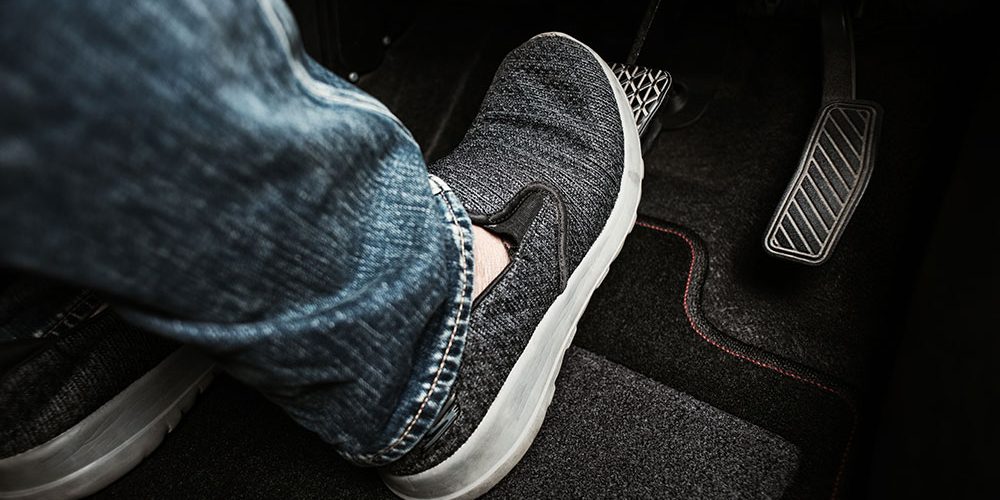Are you at your wit’s end with a screeching sound coming from the wheels of your car every time you slow down? If so, don’t stress – there could be an easy fix for this annoying problem. Squeaky brakes can often be remedied easily if caught soon enough. In this blog post, we’ll discuss why brakes begin to squeak to get to the bottom of why yours have been acting up and then go over some steps you can take. Ultimately, the best approach in this situation is always to contact a professional to make sure your vehicle is driving safely once again!
Why can brake squeaking be dangerous?
Have you ever been driving along and heard your brakes begin to squeak? It is a common problem for car owners and can have a wide range of causes. Loose brake pads are usually the culprit, but sometimes the brakes can be impacted by other factors such as moisture build-up. If left unattended, this issue can lead to much more serious consequences such as weak braking, costly repairs, and even safety hazards. To appropriately address a brake squeaking issue it is important to visit a certified mechanic or automotive specialist so they may evaluate the cause of the problem and make any necessary repairs.
Common causes of brake squeaking
One of the most common reasons for squeaky brakes is the accumulation of dirt, dust, or other debris on or between the brake pads. Another cause could be worn brake pads that need to be replaced, and newer cars may have rotors that have become warped over time due to repeated contact with the brake pads. To diagnose these causes accurately, it is important to inspect the brake pads, rotor, and calliper thoroughly. Check for any visible build-up on surfaces that may cause friction when pressed together, such as the pads and rotors. Additionally, if you notice an unusual wear pattern on the surface of your brake pads or if they seem particularly thin compared to normal, then you can also diagnose the possible cause of your squeaky brakes.
How to check your brakes yourself at home
Taking care of your car’s brakes is a vital step in maintaining safe driving conditions and checking them regularly for signs of wear and tear is an important part of that process. Fortunately, you don’t need to be a DIY expert to check how well your brakes are performing. There are some simple steps you can take from home without any special tools or equipment. Start by listening for squeaking sounds when you press the brake pedal; if this is the case, it may indicate worn-out brake pads which will need to be replaced soon. After that, test how the brakes feel. If they seem spongy or weak then this could denote an issue with fluid levels in the system. Finally, take a look at the entire brake system including lines and cylinders – these should be free from leaks or corrosion. If you are unsure how to do any of these checks, it would be sensible to consult an experienced mechanic who can advise on how best to fix any problems.
DIY tips for fixing minor issues with your brakes
Many people put off even the simplest of tasks because they feel the job to be too complex. When it comes to how to fix squeaky car brakes, common solutions include using a lubricant on the brake and brake pad areas or simply adjusting them manually. For those not as mechanically minded, a mechanic is always an option if needed. Ultimately, whatever approach you decide to take, ensure that safety always comes first and that any necessary DIY brake repairs are completed correctly for optimal performance.
Why is it important to maintain your brakes?
Maintaining your car’s brakes is an essential part of keeping you and other drivers safe on the road. Brakes are a vital component in any vehicle, as they ensure that they can be stopped and controlled when necessary. Without working brakes, you will not be able to stop or slow down quickly enough when needed which could lead to serious accidents. Additionally, worn-out brake pads reduce your overall braking performance and cause increased wear and tear on other components such as the rotors or callipers – leading to more expensive repairs down the line. Therefore, regularly checking for signs of wear and tear should be a priority for all drivers to keep their vehicles functioning safely at all times.
When to seek professional help
If your squeaky car brakes are beginning to become more than just an annoyance, it might be time to seek professional help. Even if the squeaking noise stops when you press the brake pedal, it’s possible that there could be additional problems lurking beneath the surface like rust or corrosion in the braking system. A qualified mechanic can inspect your system, detect any signs of wear and tear, and replace any worn parts with brand-new components that will ensure your vehicle continues functioning safely. In some cases, squeaky brakes may be indicative of a more serious problem such as warped rotors or bad callipers, so it’s important not to delay seeking out professional assistance if you’ve noticed anything unusual with your brakes.
Squeaking brakes – The key points
In conclusion, brake squeaking can be a major issue that should not be taken lightly. It is important to diagnose the cause of the brake squeak and act accordingly. There are ways to check your brakes yourself at home with some DIY tips for minor issues. However, if you have more serious problems, then professional help should be sought as soon as possible. Brake maintenance is essential for your safety and the safety of other road users. If you need further assistance, even after trying out all these techniques, then don’t hesitate to contact us at Double Dee Autos. We look forward to hearing from you and will be glad to help!

